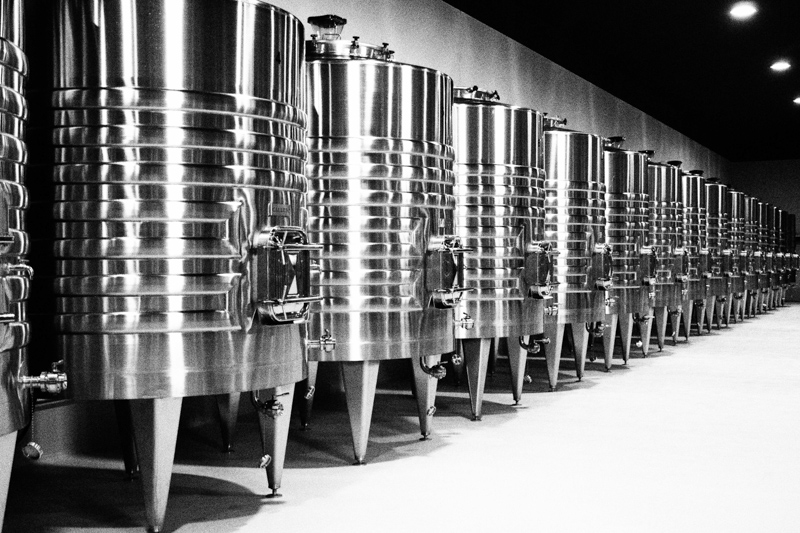There are lots of wine blogs out there, written by all manner of different people: wine merchants, wine producers, wine writers and, of course, interested amateurs.
Most – and even some good ones – fail to build any sort of audience. Why is that?
Here are my guesses.
Frequency of updating. If you are going to build any sort of traffic on your blog, you need to update it at least weekly. More frequently is better. Some exceptions exist, but not many.
Know your audience. Who are you writing for? Bear them in mind as you write. And remember: only people with a strong interest in wine actually want to read about it.
Length of posting. How many words in your average post? Personally, I can’t be bothered to read a 1000 word essay on a blog, unless it is truly exceptional. Wine writers: a blog is not somewhere to repost feature-length articles.
Stand out from the crowd. Most wine blogs look like other wine blogs. Aspiring bloggers often try to emulate the success of well-known blogs. This creates a trend to cluster wine blogs together in terms of style and content. I was recently reviewing some Australian wine blogs, and the writing style shared by several of them was bizarrely similar. Do something original, brave and different.
Have an authentic voice. Along similar lines to the previous point, be yourself. Don’t try too hard to be edgy or trendy if this is going to strip your blog of authenticity. Besides, it’s much easier to be yourself.
Persevere. It takes time to build traffic. If you don’t keep going when no one is listening, then pretty soon there will be no reason for them to listen.
Don’t be boring. Some people just can’t write. Others have the potential to be good writers, but they lack the courage to develop their writing style. I think it’s best to write more simply, and write the way you speak. If you write in a complicated style in order to impress, you’ll bore your readers.
Respect copyright. I’ve seen a few blogs where images lifted from the web are used creatively to add something to posts. This approach might be forgiven if you are writing an obscure blog that no one is going to read. But if you have ambitions for your blog, this disregard for copyright will catch you out. It’s unethical, lacks professionalism, and could lead to the rights holder coming after you for compensation. Use your own photos or illustrations, or ask permission first.
21 Comments on Why most wine blogs fail to thrive

Another reason for failure is the lack of SEO and content distribution through social media platforms to drive awareness.
Great post and bang on the money.
Hm, I’m guilty on the frequency issue. The rest I’ve got covered, but it’s just so easy to let time slip while I write for other sites, other magazines etc and just place my own blog at the bottom of priorities. Need to change this. Thanks for the reminder Jamie.
I doubt a single wine blog has ever failed because the blogger lifted a photo from google images. That last point is unrelated to your post, though it is an important subject for a separate discussion.
I’d also add that bloggers should recognize the potential for strong, original reporting. I’m talking about actual reporting; interviews and investigation, research etc. If bloggers can produce original content that includes true reporting, readers won’t obsess over word count. If bloggers drone on and on about their personal taste in wine, you’re right that word count matters.
Cheers.
I think whether a blog is successful or not also depends on what the aim of it is. If you want lots of people to read it then regular blogging and things are important.
But for me it’s more of a bit of cathartic self indulgence, if I write something I’ll tweet about it if it’s a proper post – but mostly it’s inane ramblings that help me to clear my head. That’s why I’ve posted irregularly but driving traffic isn’t what it’s about for me (which is probably unlike the vast majority of bloggers) in the same way I nearly didn’t tell anyone about it, but was going to keep it anonymous but a friend knew I was doing it and coaxed me to reveal all.
Ref images – I prefer to not use an image than steal one if I can. – a bottle shot or vineyard picture from a winery or importer website put there to download is probably fair game – but stealing my own photo of a sunset over the Douro isn’t cricket.
Thanks for the great post! Lots of useful advice there. About the copyright issue: why is it unethical and unprofessional to copy images from the web? I mean, why were those images put there in the first place? Unless it’s a professional photographer or company actually selling the images, that is. Is it not a bit obsessive to so jealously guard one’s “rights” to use an image? A random image on the web must have a value of about 0.00001 of a cent/penny FGS!
What’s the traffic on your blog?
One of the reason many wine blogs fail is that the blogger is not qualified to write about wine! Just as it takes qualifications to be an expert in the medical or legal field (MD or Attorney) if a wine blogger has aspirations to be an authority and thus have a following they need to earn certification from a recognized wine organization such as Society of Wine Educators, Court of Master Sommeliers or study of enology and viticulture with course credit to show. Work crush at a winery, sell wine on the street or serve it in a restaurant then comment. No experience = no credibility. That’s the problem with many wine blogs.
The same goes for food bloggers, especially the part about qualifications to be an expert.
I don’t find the reasoning of Mr Kauffman persuasive. Medical and legal bloggers deal in facts, wine bloggers in subjective impression. Thus qualifications are unimportant. You’ll be telling us next that music critics need to be able to play an instrument. Being able to convincingly express your experience is the most important thing.
Fabio – My intellectual property is for me to give, or sell, not for others to take. It is not just a question of ethics or professionalism, is it the law. Having said that, if anyone were to ask me nicely I would probably give them permission to use an image or some text that belongs to me, particularly if they to credit me. But suggesting that someone else’s work is only worth a fraction of a penny is probably not the way to go when requesting image rights 😉
Marc – There is another way to establish credibility – give references. Doesn’t really apply to tasting notes, but in any debate or controversy it is very effective. I am amazed how many people assert facts without backing them up. In dead-tree writing, references are awkward and look scary, but hyperlinking is natural in blogs.
I’d add: write about wine. You may have other interests (Peter Liem once wrote a post about coat hangers), but remember that unless and until you have a personal following, your readers may not share them.
Actually for me what’s interesting about this blog as much as anything else is being candid. I like that you openly rebuked a £475 per bottle wine here because you didn’t like it :). After all, it’s a blog, you can post whatever you want here and it should be literally how you view things in order for it to have character.
Hmmm Marc – my blog makes not reference to my qualifications… but they are perhaps relevant. I’ve got the WSET diploma (and won a prize doing it), I’ve moved from enthusiast to wine professional and have worked in the wine trade for 5 years, from the bottom up to the point that I buy for and run four shops.
I have a degree in Environmental Biology – this included things such as Ecology (lots of it), Soil Science, Soil Biology (two very different things), botany, microbiology, biochemistry etc etc – are we now saying that I’ve got to tell people those things in order to make my blog worth reading? I hope not. (Although as i’ve said my blog isn’t for reading but I’d hope that others that write well wouldn’t be contstrained by the pieces of paper they may or may not hold.)
Thanks for this post!
From time to time we need to review what we are writing!
@Steve, thanks for replying. I realise it’s the law. It’s just that I find it strange that people upload images and then get upset when others copy them! A few sites (good profesional ones) have asked me if they could use my posts, but I’ve noticed that others just do it without asking.
Yes, it sounds terrible to suggest that someone’s image is worth basically zero, but it’s true, is it not?
(btw, I’ve never copied text or images myself, I was just wondering out loud, as it were)
As with everything else in life (in monetary terms) an image is worth as much as someone is prepared to pay. Some will be worth zero, others will not, but if people just take we will not find out.
I give my qualifications (such as they are – more modest than Tim’s) on my about page, and let others judge for themselves. But I don’t think any formal qualifications are necessary, and they can be a hindrance. With reference to my comment yesterday, this is not just my assertion – I am backing it up with a link to my argument, which in turn links to experimental evidence.
Very well pointed Jamie, important reading. Maybe the most difficult is to know your audience, who is behind. Here you may have many surprises.
On “stand out from the crowd”: I’m not sure that ‘style’ is ‘owned’ by someone when it’s a freely-available ready made format, as per your blog Jamie. As you acknowledge at the bottom, Atahulpa theme is by BytesForAll not you, it’s the content that counts, not the ‘look’.
Sooner or later it all comes down to recognition and cash. Plain and simple. If a blogger isn’t getting at least a little of both for their efforts, what’s the point?
Thanks for all the comments. Damien, to clarify, by ‘style’ I meant writing style, not the blog style template
Bang on the money, as always, Jamie!